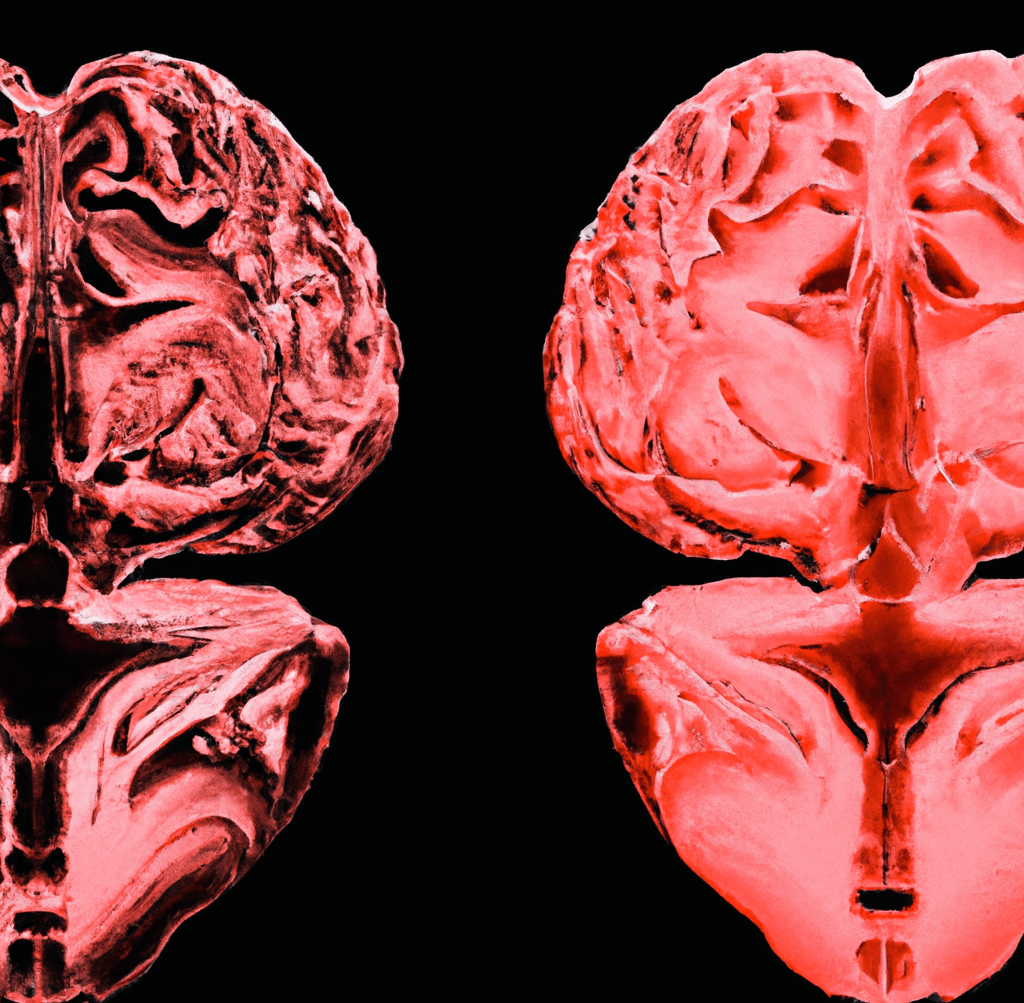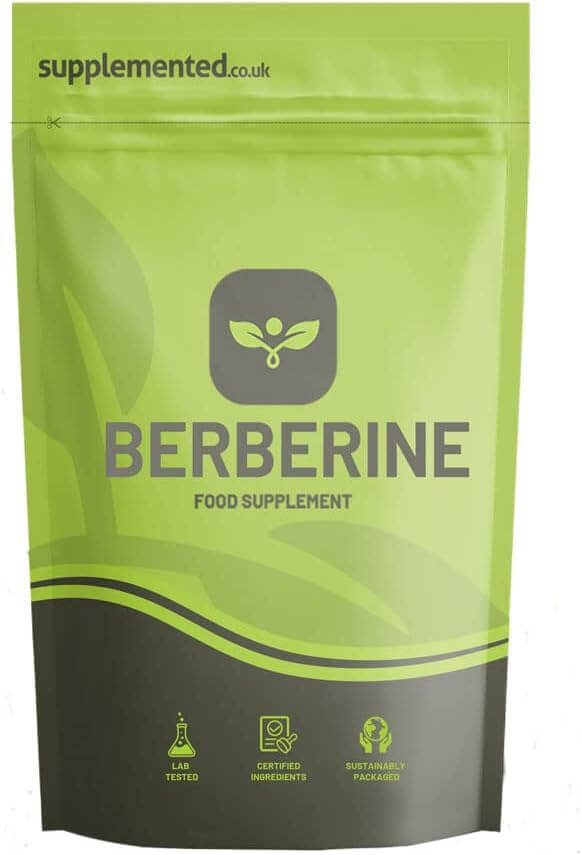Supplements to reduce cortisol | Biohacking your body
6 December 2023 | James Kearslake
Table of Contents
Fun Fact
Cortisol is referred to as the ‘belly fat hormone’ because high levels of cortisol lead to weight gain, particularly around the abdomen.
This is why, when individuals are stressed out, they often gain weight and see it more around the belly.
So, next time you’re feeling stressed, try taking a deep breath, and unwinding to a little meditation music. Your waistline will thank you for it.
What is Cortisol
Cortisol is widely referred to as ‘the stress hormone’.
It is critical for the body’s daily physiological processes, including energy mobilisation and immune defence, yet cortisol is likely a primary reason you are not hitting your state of peak performance.
It is the release of cortisol from our fight or flight response which, if not properly managed, causes severe cognitive impairment and long-term, chronic health conditions.
To understand the damaging effects of cortisol when accumulated in the body, it’s important to first understand cortisol’s primary functions in the body’s daily physiological processes.

Cortisol’s Role in Daily Functioning
Each of our bodies has its own circadian rhythm, being the body’s internal biological clock that regulates our sleep-wake cycle, digestion, and release of hormones, as well as synchronising the body’s physiological process with the day-night cycle.
Cortisol levels rise each morning, reaching their peak shortly after waking, and is commonly known as the ‘cortisol awakening response’. The morning rush of cortisol mobilises glucose, providing the body with an immediate source of energy to start the day, and increases alertness to activate our cognitive processing.
Throughout the day, cortisol continues to be released in smaller, intermittent pulses to help regulate metabolism, immune function, and the body’s response to stress.
At night, cortisol release levels are at their lowest, helping the body relax and prepare for sleep.

Cortisol’s Role in Fight or Flight
Cortisol is also released when our sympathetic nervous system is activated, or fight or flight response, only its released in a much greater volume.
The hormone acts quickly, mobilising energy stores for rapid use, suppressing non-essential bodily functions to redirect energy for fight or flight, and increasing the heart rate and blood pressure to accelerate delivery of oxygen and nutrients to the muscles in preparation for action.
Cortisol is therefore a critical component of the survival response, however, in the modern age, our fight or flight can be activated from scenarios that do not warrant a true survival response – this can be things like difficult conversations with our boss, approaching deadlines, or somebody cutting us up on the motorway. As a result, our body enters fight or flight without expending the build-up of energy and cortisol that’s been produced. This causes cortisol to accumulate in the system, and over time the excessive levels of cortisol severely affect our physical and mental health, impairing cognitive function, and causing long-term, chronic health conditions.
Because cortisol is a hormone which is metabolised and cleared through the liver, the process of metabolism is gradual and takes time. Unlike neurotransmitters which clear from the neural network quickly, cortisol has a greater half-life, meaning it stays in the bloodstream for longer.
The body also retains a ‘memory of stress’, which leads to a continued release of cortisol after our fight or flight response has ended. This is part of the body’s adaptive response to stressful situations, preparing it for similar, future stressors.
Therefore, the best way to limit cortisol accumulating in the body is by working on how we respond to stressful situations, thereby reducing the volumes of cortisol released in the body.
This can be achieved with biohacking through nutrition, adaptogens, and supplementation, consistent exercise, activities that activate the parasympathetic nervous system including yoga and walking, and the gradual rewiring of our brain which occurs through neural plasticity. Note, the latter is the most challenging change to make as it needs long-term commitment to oneself, therefore biohacking techniques with immediate changes should be your first step in the process.
If not addressed, long-term, accumulation of cortisol in the system will result in some of the following common mental and physical health conditions:
Physical Health Conditions
- Metabolic Disturbances – Elevated cortisol levels can influence metabolism, contributing to conditions such as insulin resistance, impaired glucose tolerance, and an increased risk of developing type 2 diabetes.
- Cardiovascular Issues – Chronic stress and cortisol elevation are linked to an increased risk of hypertension (high blood pressure) and cardiovascular diseases.
- Weight Gain and Abdominal Obesity – Cortisol is associated with increased abdominal fat storage, and chronic stress can contribute to weight gain, especially around the midsection.
- Digestive Problems – Elevated cortisol levels can negatively impact the digestive system, leading to issues such as irritable bowel syndrome (IBS) and other gastrointestinal problems.
- Bone Density Reduction – Prolonged exposure to high cortisol levels may contribute to reduced bone density and an increased risk of osteoporosis.
- Sleep Disturbances – Cortisol follows a circadian rhythm, and chronic stress can disrupt this cycle, leading to difficulties in falling asleep and maintaining restful sleep.
- Impaired Immune Function – Chronic stress and elevated cortisol levels can suppress the immune system, increasing susceptibility to infections and illnesses.
Mental Health Conditions
- Impaired Cognitive Functioning – Prolonged exposure to high cortisol levels may affect cognitive function, leading to issues such as memory problems and difficulty concentrating.
- Mood Swings – Cortisol imbalances can contribute to mood swings, irritability, and heightened emotional reactivity.
- Sleep Disorders – Disruptions in the circadian rhythm caused by cortisol imbalances can contribute to sleep disorders, including insomnia.
- Fatigue and Burnout – Chronic stress and persistent cortisol elevation can lead to fatigue, burnout, and a feeling of constant exhaustion.
- Adrenal Fatigue – While not universally accepted as a medical diagnosis, some people use the term ‘adrenal fatigue’ to describe a cluster of symptoms, including fatigue, body aches, and difficulty coping with stress, which is thought to be related to prolonged stress and cortisol dysregulation.
- Reduced Libido – Elevated cortisol levels may impact reproductive hormones, leading to a decrease in libido and sexual dysfunction.
- Anxiety and Depression – Chronic stress and elevated cortisol levels are associated with an increased risk of anxiety and depression. Cortisol can impact neurotransmitter balance, affecting mood regulation.
Adaptogens that Lower Cortisol
Adaptogens are natural products like plants, roots, and liquids which help balance the body’s hormone levels, or bring it back to a state of ‘homeostasis’.
Homeostasis is critical if you want to achieve your peak performance, cognitively and physically.
Imbalances in hormones can severely impair our cognitive functioning, result in brain fog, and leave us unable to concentrate, irritable, and in a low mood.
It can also cause muscle weakness, aches, and stiffness, weight gain, inflammation in the joints, gastrointestinal issues, increased thirst, hunger, decreased libido, and many more undesired physical affects that significantly impede our physical performance.
Homeostasis therefore mitigates these damaging effects on the body, creating an optimal internal operating environment for you to achieve your peak performance.
Striving for homeostasis should be a key biohacking strategy built into your daily lifestyle – no exceptions.
Adaptogens which reduce levels of cortisol in the body include:
- Siberian Ginseng | the ultimate nootropic for cognitive function
- Rhodiola Rosea | The natural root that reduces anxiety and alleviates depression
- Ashwagandha | power up the body, brain, and libido
- Maca Root | the libido-enhancing, erectile solidifying supp
- Turmeric | helping the body and brain adapt to stress
- Cordyceps Mushrooms | enhancing sport (and sexual) stamina
- Reishi Mushrooms | its overwhelming ability to calm the central nervous system
- Shilajit Liquid | exponentially increases energy, stamina, and your sexual performance
- Korean Ginseng
- Cistanche
- Cynomorium
- Eleuthero
- Holy Basil
- Morinda
- Rhaponticum
- Schisandra
- Shatavari
- Codonopsis
- Guduchi
- Devil’s Club
- Horny Goat Weed
- Jiaogulan
- Licorice
- Manchurian Aralia
- Prince seng
- White Bryony
Supplements that Lower Cortisol
There are also supplements available which are not adaptogens, but do lower cortisol levels, or limit the volume of cortisol released during a stress response.
These supplements work in the various ways and do not fall into specific categories. These supplements include:
- Fish Oil | Omega-3 fatty acids found in fish oil help influence cortisol secretion.
- Passionflower | The anti-anxiety herb used by Aztecs
- Magnesium [Malate] | increase energy levels naturally
- Anandamide | the ‘feel good’ supplement releasing waves of serotonin in the body
- Phosphatidylserine | increase cognitive processing, speed, and memory
- Tongkat Ali | increase your sexual energy, naturally
- Tribulus Terrestris | the new sex supplement making you feel good
Natural Ways to Lower Cortisol
In the modern age, stress is the primary trigger for excessive cortisol production; if we want to lower cortisol levels, we need to lower our exposure to stress or how we respond to stress.
Building healthy, daily habits are critical to lowering stress levels, and it’s important to include activities which activate our parasympathetic nervous system, or rest and digest.
By expanding our comfort zone, and building emotional resilience, we’re also able to change how we respond during a stressful event, in turn lowering the volume of cortisol released when under stress.
Natural ways to lower cortisol include:
- Consistent Exercise – exercise is key to regulating cortisol build up within the body. Exercise promotes the release of cortisol during the activity, but over the long term, consistent exercise forms a more balanced cortisol rhythm. It also increases endorphins in the body, lowering the stress response when exposed to a stressful situation.
- Quality Sleep – Quality sleep is essential for maintaining a healthy circadian rhythm and cortisol balance. Sleep is your superpower – prioritise it!
- Sync with your Circadian Rhythm – The circadian rhythm is our natural body clock that’s unique to us. Studies have shown that those operating in a way that’s misaligned with their circadian rhythm have higher levels of accumulated cortisol. For example, if you’re a night owl but are waking at 5am to workout, your body will experience greater volumes of cortisol than the 5am club who wake naturally at this time.
- Nutrition – What we put into our bodies is critical to how our body operates, including our brain. Fresh fruit, vegetables, fish, and good fats keep the stress levels down, and the cognitive functioning up.
- Hydration – Dehydration leads to increased cortisol levels in the body. We have one 1.5L of coconut water, every day because it is full of natural electrolytes which keeps the body hydrated. Include this into your daily habit – you’ll never look back.
- Limit caffeine intake – In the morning, caffeine is critical to prime the body for peak performance, but caffeine in the late afternoon or evenings will increase cortisol and disrupt your sleep. Avoid caffeine after 3pm, and if you’re in need of an energy boost before the evening, try a hot-to-cold shower, or drink a natural smoothie found in the list below.
- Have a Natural Smoothie – Fresh fruit, vegetables, and proteins provide natural sources of energy, offering a far more effective boost than caffeine ever will. Try a green or beetroot smoothie for natural energy levels, with Beetroot being particularly effective as it contains dietary nitrates that the body can converts to nitric oxide. Nitric oxide has vasodilatory effects, meaning it widens blood vessels, improving blood flow and oxygen to the organs and muscles. Alternatively, try mixing orange juice with a Berocca for a potent hit of vitamin C that will leave you feeling fresh, alert, and ready for round two. The natural source of energy will limit cortisol production and improve cognitive functioning.
- Yoga – Contrary to popular belief, yoga isn’t about building flexibility. Nor do you need to be flexible to do it. Yoga is about mind-body connection, and is a deeply spiritual practice that helps us enter a meditative state. This activates our parasympathetic nervous system, or rest and digest. Do not underestimate the significant and unique benefits that yoga has for the mind – you should be building it into your habits at least once per week.
- Meditation – Meditation and mindfulness are incredibly powerful tools to still the mind, increase concentration and focus, and over time improves brain health and neural plasticity. Meditation is a critical tool to lowering cortisol, overall stress response, and improving how we respond to stressful situations.
- Sauna to Ice Plunge – Exposure to the extreme temperatures of a sauna to ice plunge can significantly improve stress hormone regulation; lowering levels of cortisol and increasing the production of dopamine and serotonin.
- Seeing Friends & Family – Maintaining strong social and familial connections are critical to keeping cortisol levels down. Social bonding also floods the system with oxytocin, known as ‘the love hormone’, which leaves us feeling happier inside, and making us less likely to experience the negative feelings that result in cortisol production.
- Spend Time in Nature – A study in 2020 showed that just twenty minutes by water helps calms the central nervous system and reduces feelings of stress and anxiety. And taking time in nature can reduce cortisol levels at an average rate of 21.3% per hour spent outdoors, which is an incredibly effective rate of reduction.
Final Thoughts
Although cortisol is a critical hormone for the body’s daily physiological processes, it can also be a primary reason you are not hitting your state of peak performance.
Understanding how cortisol operates in the body and what triggers excessive levels of cortisol is key to determining if cortisol is a potential cause of impaired cognitive functioning.
Adaptogens offer the fastest route to rebalancing cortisol levels in the body and returning to a state of homeostasis.
However, dependency on adaptogens isn’t a sufficient strategy as we need to also limit the volume of cortisol released during a stress response. This can only be done through a combination of supplementation and mastering the power of our mind, reframing how we experience and overcome stressful events, and being able to move on quickly from them. Letting go really is something you need to do.
Building emotional resiliency is a key component to managing our stress response and is something we will be writing about in depth as we develop our program of peak performance.
For today, make sure to join our mailing list and you will be the first to hear when our program of peak performance launches.
Otherwise, get yourselves onto Siberian Ginseng, Rhodiola Rosea, Ashwagandha, or Reishi Mushroom so that you experience the life-changing effects of adaptogens, and then let me know how quickly you experience the uplift in cognitive clarity and processing.
Who is James Kearslake?
Having been biohacking my mind and body long before it became fashionable, I’ve always lived by the benefits of nature’s resources to improve cognitive and physiological performance. Using my years of experience, products, and wellness practices, I’m now helping others elevate their cognitive performance to help build the life they want. I save you the time I’ve spent learning, so you can focus your time on building.
Proudly AI Supported
I proudly use AI to support development of my articles. As a heavily dyslexic person, writing can be a time consuming process with words often jumbled up and sentences the wrong way round. AI has become my crutch; allowing me to share the immense interest in my mind, while making content creation quicker and more accurate. AI is my benefit.
Buy Now | £17.09
GET 15% OFF l USE CODE: WEAREHUMANS15
Buy Now | £34.99
Buy Now | £24.99
Did you find this useful?
If so, please do share it with others who may also benefit from it.
Affiliate Policy
We only ever recommend products we know offer value to our readers and that we use ourselves.
When recommending these products, we often include affiliate links so that we earn a small commission on sales made, at no expense to you as the reader.
Affiliate commissions are similar to an advertising fee which retailers pay to website owners, and is often the only way website owners can earn money through the content they create. Therefore, we hope you can support us by using our affiliate links if you decide to purchase products after reading our content, as it helps keep the website operating.
Thank you for always sticking by us, and don’t forget to join our newsletter to get ground-breaking content direct in your inbox.




